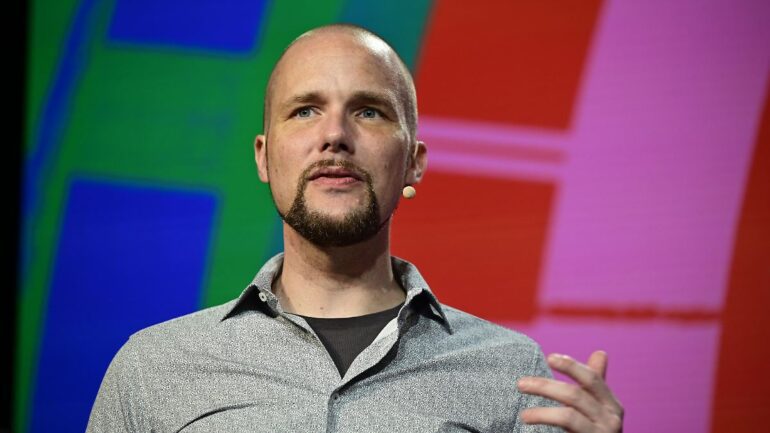TL;DR:
- Aleph Alpha, a German AI company, secures €460 million in a Series B funding round.
- A substantial portion of the funding, €110 million, is in equity, with the majority as a grant, free from debt.
- The round is led by a consortium of seven investors, including Ipai, Bosch Ventures, and SAP, with support from existing investors.
- Aleph Alpha specializes in Large Language Models (LLMs) for enterprise applications.
- The funding will boost research, development, and commercialization of generative AI in healthcare, finance, law, government, and security.
- The goal is to enhance competitiveness against global AI giants in the US and China.
- Despite a desire for European investment, Aleph Alpha attracted US-based participation.
- The company aims to contribute to Europe’s tech sovereignty and growth without pursuing size as its primary objective.
Main AI News:
In a remarkable feat, Aleph Alpha, the German AI powerhouse, has successfully secured an impressive €460 million in funding through its Series B round, marking one of the most substantial AI investments in Europe to date. Notably, a significant portion of this funding, amounting to €110 million, takes the form of equity, with the majority of the capital infused as a grant, notably free from any debt obligations.
This momentous fundraising round, initially reported by Handelsblatt, is spearheaded by a consortium of seven distinguished investors. Among these key contributors are Innovation Park Artificial Intelligence (Ipai), headquartered in Heilbronn, as well as technology giants Bosch Ventures and SAP, alongside other notable participants. Aleph Alpha also saw unwavering support from its existing backers, including Cavalry Ventures, LEA Partners, and 468 Capital.
Aleph Alpha is renowned for its pioneering work in developing Large Language Models (LLMs), akin to OpenAI’s GPT-4, tailored specifically for enterprise applications, in stark contrast to consumer-oriented AI offerings.
This substantial influx of capital is poised to fortify Aleph Alpha’s research capabilities, catalyzing its efforts in advancing and commercializing generative AI technologies for deployment across diverse sectors, encompassing healthcare, finance, law, government, and security. This strategic infusion of resources is anticipated to position Aleph Alpha for heightened competitiveness on the global stage, potentially challenging the supremacy of AI giants in the United States and China.
The Pursuit of Technological Sovereignty
Founder and CEO Jonas Andrulis harbored a distinct vision for Aleph Alpha’s fundraising efforts, expressing a fervent desire to engage solely with German and European investors. Nonetheless, this endeavor proved to be a formidable challenge. According to a participating venture capitalist, numerous US-based funds expressed interest in joining the investment round, with only Hewlett Packard Enterprise, a US entity, contributing a relatively modest sum.
Despite Aleph Alpha’s unwavering commitment to fostering Europe’s technological sovereignty, the question of whether it can ascend to prominence in the AI arena without substantial US investment or resources lingers.
Claude Ritter, a partner at Cavalry Ventures, remains cautiously optimistic. He observes, “In the past, Europe lacked the capital for such endeavors. However, with the emergence of companies like DeepMind, Mistral, and other AI innovators, we now have compelling evidence that significant progress is occurring right here on European soil.”
Ritter further underscores the burgeoning interest from governments, particularly citing France’s heightened focus on AI technology. “It appears that Aleph Alpha is well-positioned to thrive amidst this momentum. Can we definitively label it as a solely German enterprise in the long run? I cannot say,” Ritter adds.
Jonas Andrulis himself shared his perspective during an event in Heilbronn, the base of Ipai’s operations, stating, “My aspiration was never centered around the size of the company. Yes, I aim to contribute to the establishment of technological sovereignty, but my ultimate goal is to achieve this with the smallest team possible.”
He continues, “Size was never the primary objective; it’s all about capability. As long as the smallest group of individuals can lead us toward that goal, I am content.“
Conclusion:
Aleph Alpha’s impressive Series B funding signals a significant stride for the European AI market. The substantial investment, diverse investor base, and the company’s commitment to technological sovereignty underscore Europe’s growing prominence in the AI sector. While Aleph Alpha aims to challenge international competitors, its visionary approach and focus on capability oversize may reshape the future of AI in Europe, fostering innovation and competitiveness in the region.

